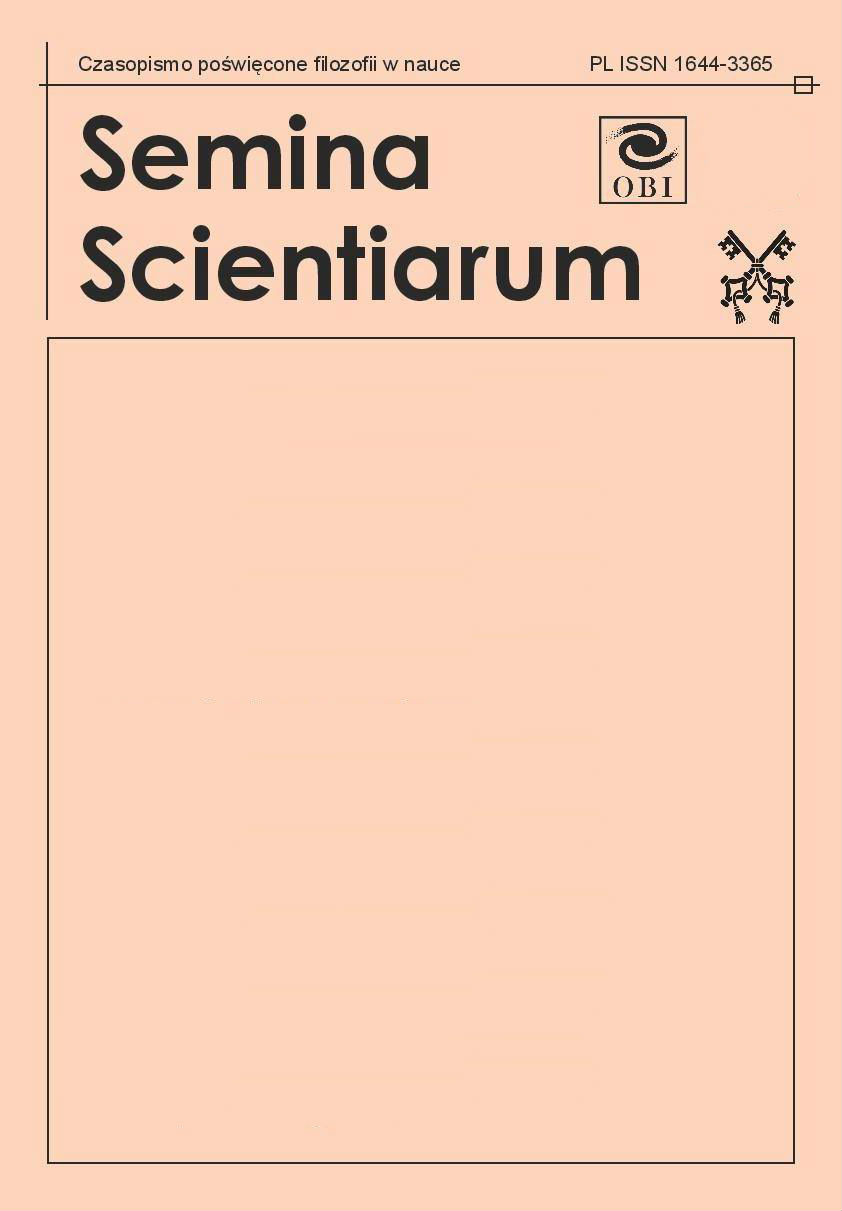
We kindly inform you that, as long as the subject affiliation of our 300.000+ articles is in progress, you might get unsufficient or no results on your third level or second level search. In this case, please broaden your search criteria.

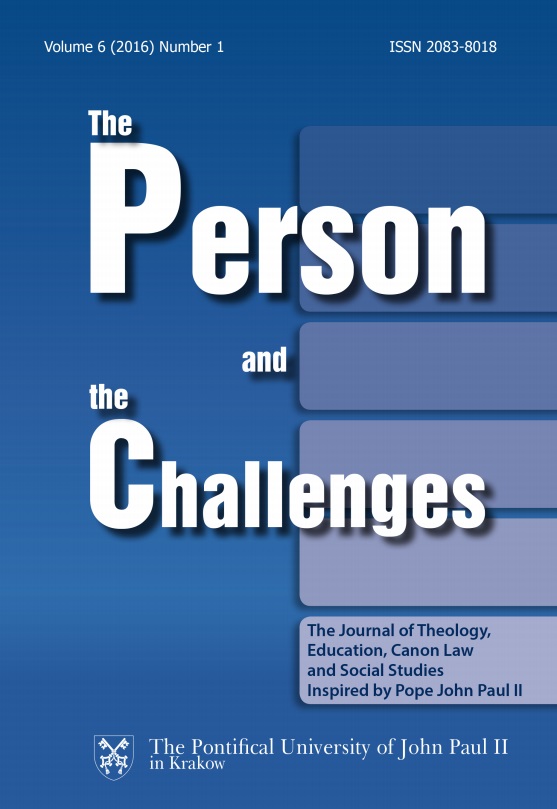
This paper deals with the conflict between faith and science. Since the issue is extensive, only selected aspects of this question are discussed. At first, the origin of the problem is outlined – it is argued, that the fundamental difference between the language and the method of science on one hand and of theology understood as a rational reflection on the truths of faith on the other is responsible for the conflict. Afterwards, two aspects of the conflict are presented – the first one concerns inconsistencies which appear on the plane of content – when some scientific statements or theorems seem to deny some theological claims; the second one involves differences in mentality and in worldview which appear on the plane of attitude. It is argued, that the content discrepancies can be eliminated with the help of two methods: of separation and of catharsis. But the differences in mentality which appear on the plane of attitude cannot be so easily eliminated. So finally the characteristics of these two different attitudes – of faith and of science – is discussed. It is argued, that a fundamental dissimilarity between the character of scientific knowledge (especially its empiricism) and of religious faith is a basic source of mutual estrangement and alienation.
More...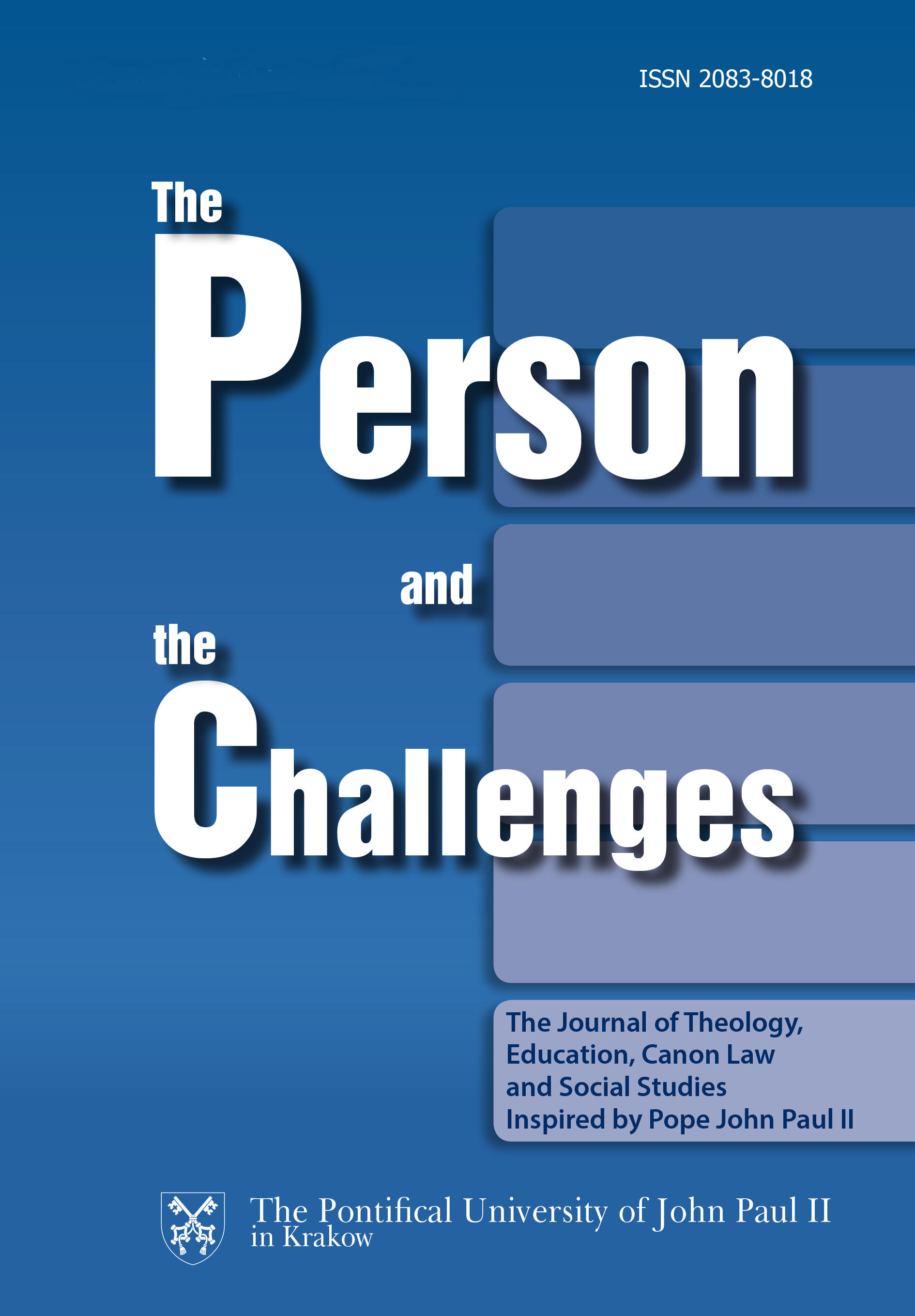
This paper aims at bringing to light a presentation of the nature of religious education in Poland. This study will therefore present a brief historical outline of religious upbringing in Poland, its current organisational regulations and the principles of religious education in schools. In our summary, we will present the level of effectiveness of religious education in Poland, and we will also explore the discussion on the reformation of religious education in Poland which is being worked upon.
More...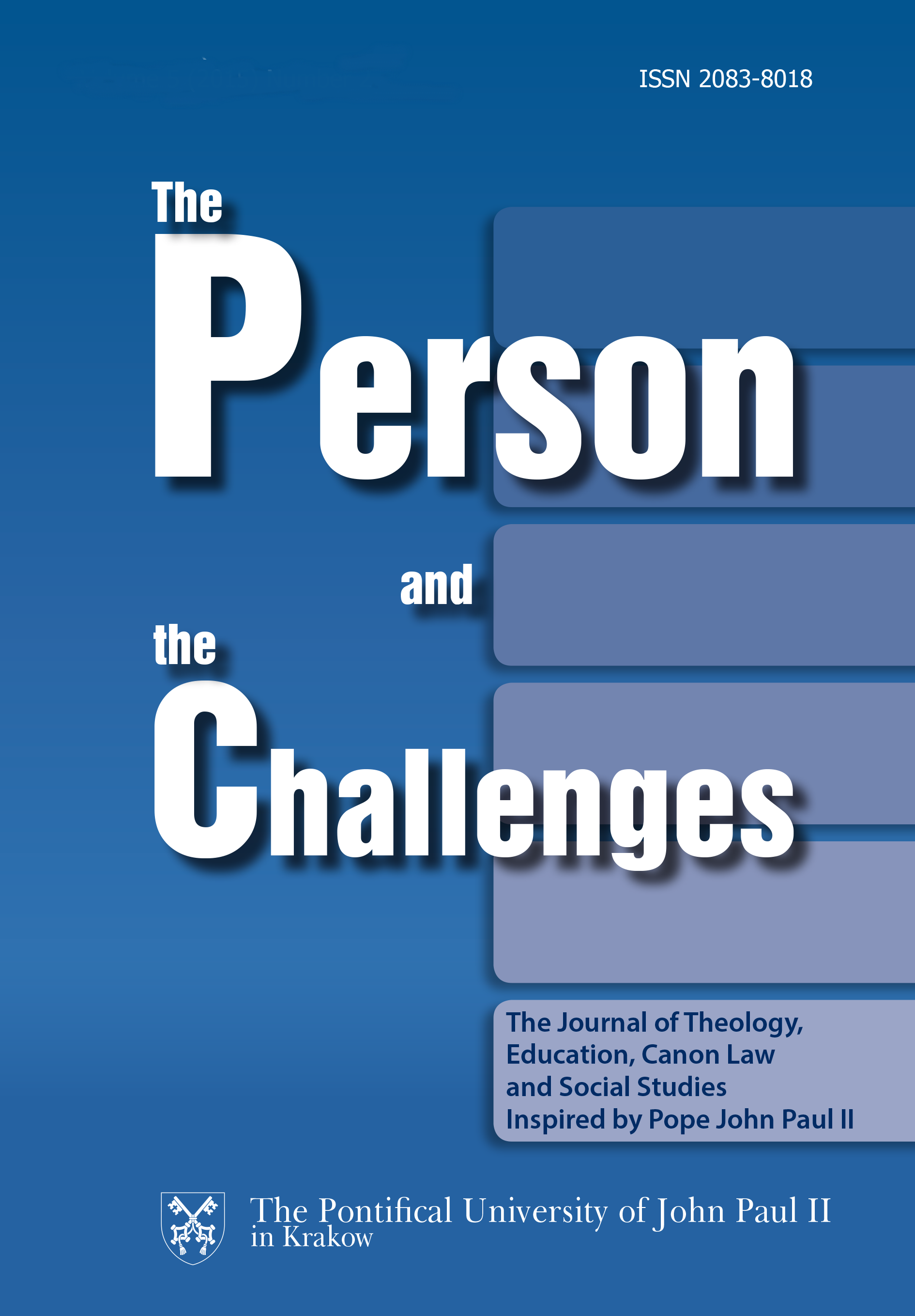
The article dwells upon the theme of the journey in the Mediterranean, the cradle of the three great monotheistic religions. Taking some paradigms for the journey from mythology, history and from Revelation, the physical journey is taken as a metaphor for the pilgrimage of life, an experience marked by maturation and conversion. This spiritual pilgrimage ultimately consists in the individual’s search for the Divine.
More...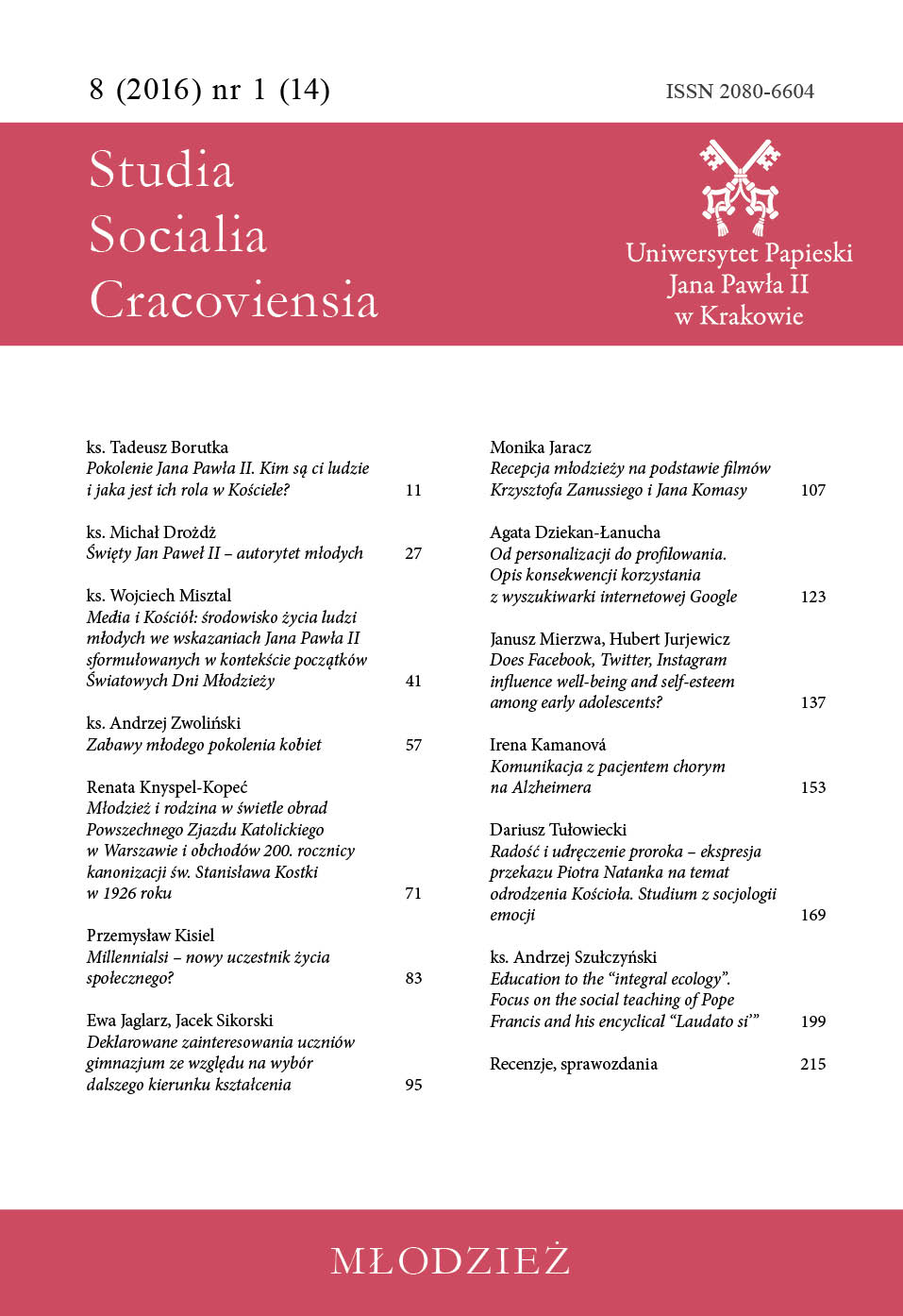
On 1985, for the 19th World Communications Day, the pope John Paul II promulgated the message Social Communications for a Christian Promotion of Youth. This pontifical document echoed the initiative of the United Nations, which has proclaimed 1985 year as the International Year of Youth. But, and perhaps it is more important, not only chronologically this document coincides with such papal initiatives for young people like the origins of the World Youth Days. As for the technological development and the growing importance of the media since 1985 it accomplished very much. We are then faced with a promising prospect which creates specific conditions for the reading of the thoughts of John Paul II when it comes to the media as part of modern civilization in conjunction with the potential proper to Christianity and the mission of support for young people.
More...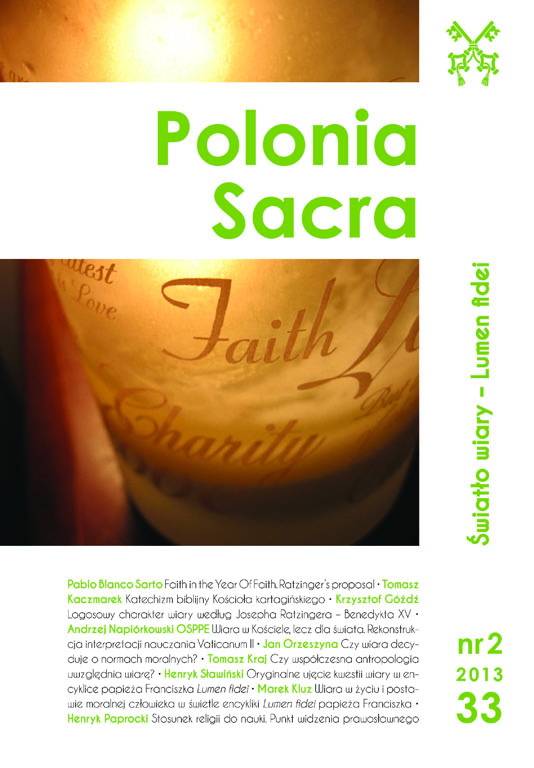
Polish astronomer Konrad Rudnicki suggested that the so-called Copernican revolution, with far-reaching consequences for western Christianity, was hardly noticed in orthodoxy. In this case, the domain of discoveries and scientific truths remained distinct from the strictly theological domain. The Earth was treated as a mystical centre of the universe because of the Incarnation of Christ, which did not mean that it was also the real centre of the empirical universe. However, Copernicus’s discovery led to a rapidly progressive process of the western Church distancing itself from science. On the other hand, discoveries and scientific theories can in no case be contrary to the principles of faith, because we are dealing here with two different cognitive methods. It is the point of destination of both methods that should be the same. As regards culture, we need to consider the fascinating relation of the Latin words cultus and cultura, which points to the fact that culture developed originally within the cult, and it was there where its source was (Fr. Paul Florenski). The real culture (and thus literature and art) must always have a dimension reaching beyond time. In this respect, every authentic work of art has a sacred character in the sense of a deep inner connection with everything that is transcendent. When it comes to the connection between religion and science, the situation is even more evident, as God commands in the Bible: „Fill the Earth and subdue it” (Genesis 1:28), which requires education, because without it, it is impossible to master the earth. The contradiction between science and culture on one side and religion on the other is something superficial and, indeed, must not be present, if we understand properly the role of all these areas in their mutual relations.
More...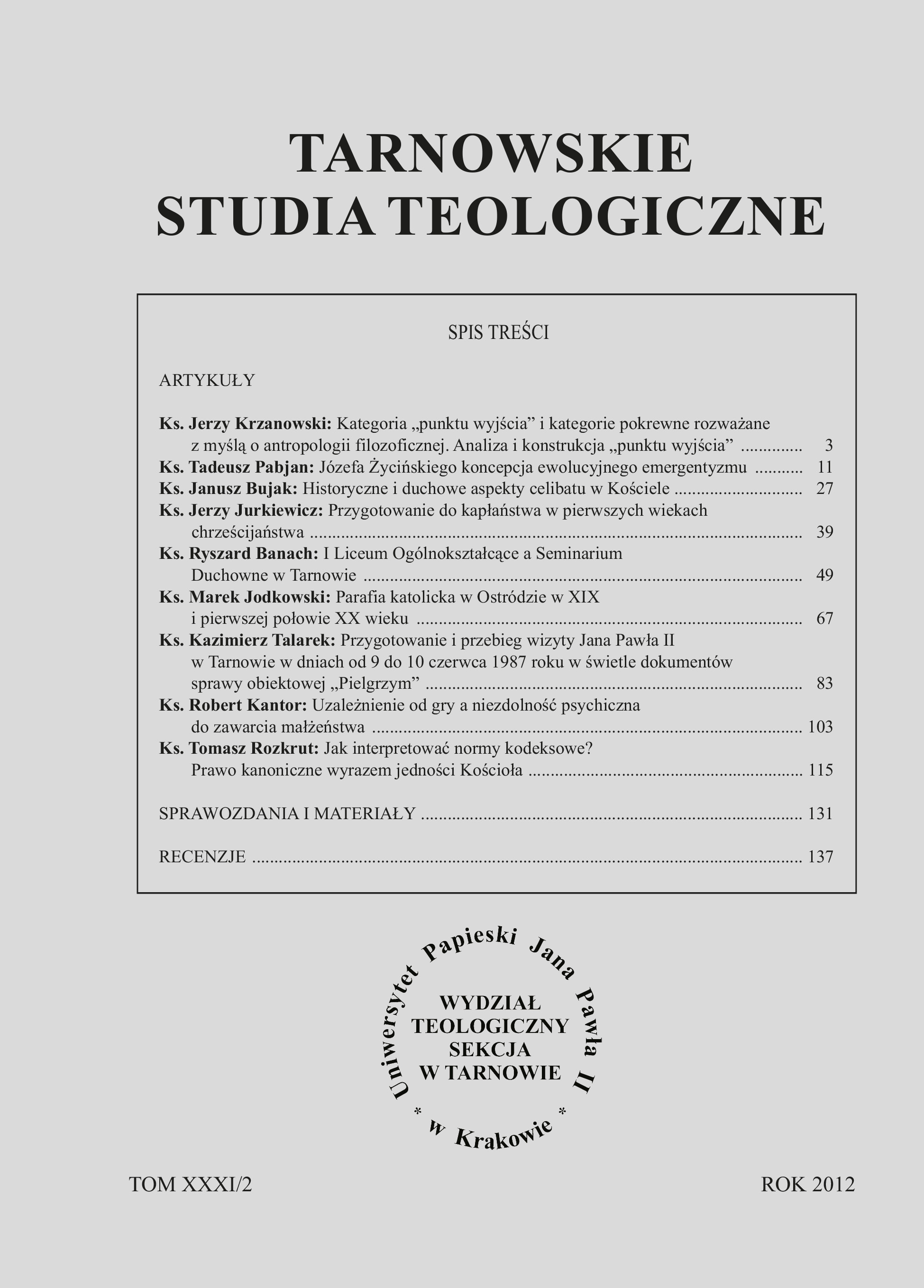
Emergetism is a theory which explains the mechanism of evolutionary development of nature by stipulating that in complex natural systems on the higher levels of complexity there appear some functions and properties that cannot be reduced to and accounted for by functions and properties of the lower levels of complexity. It is therefore the theory of emergence – which stands for some special way the complex systems arise (emerge) from a multiplicity of their relatively simply components. The idea of evolutionary emergentism appears in the philosophical writings of Joseph Życiński in the context of a discussion on the possibility of creating a interpretation of evolutionary processes in which biological theory of evolution could be combined in a coherent way with a theological doctrine about God, the creator of the universe. This paper presents the main ideas and opinions Życiński formulated about this theory; the first part of it contains some basic characterization of emergetnism, the second one compares the notions of emergence and of supervenience; the third one concerns some theological interpretation of this two notions.
More...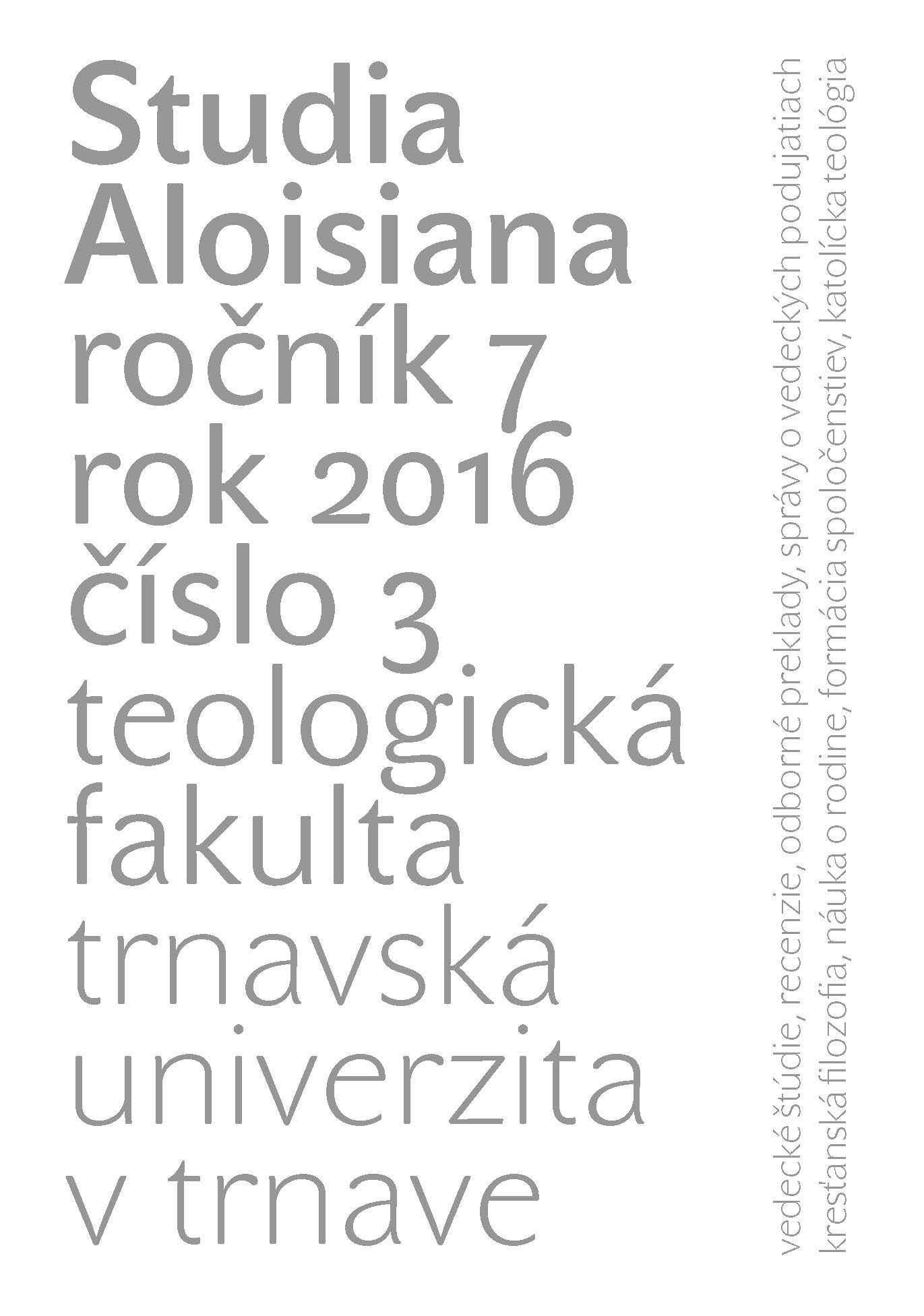
According to Teilhard de Chardin, the process of the universe and life will culminate in the “Omega Point”. His optimistic evolutionary worldview finds two difficulties in our times: first, Phylogenetics considers Life as a forest or a network, undermining thus the image of an endpoint; second the ecological crisis leads to think about the likelihood of the disappearance of part of the biosphere and even the Homo sapiens. This probability seems to contradict the trend towards a concentration point of all the biogenesis and noogenesis. However, it is possible to rethink the “Omega Point” theory from these new lines of thought.
More...
Dans cet article l'idéologie sera prise, d'une manière simpliste, pour un moyen de considérer les choses. Son épithète en anglais envisage l’intensité de la pression sociale quotidienne exercée par l'esprit d'imitation. Dans l'étude de certains procès de doublement, nous devons nous rapporter à l'humanité qui doit résister au cauchemar du clone scientifique. En plus, la vision double sera prise pour une réaction en chaine en tant que la mort de la diversité et le doublement de l'original fort culturel. La dissémination du double semble mettre en danger les ressources créatrices de la planète par son appauvrissement graduel. Finalement, l'originalité même d'un petit pays sera affectée par la globalisation contemporaine et son procès de doublement.
More...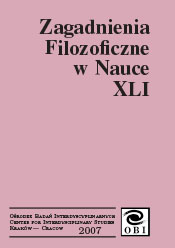
There are many different approaches to the problem of the relation between science and religion. It is often claimed that there exists a conflict between those two domains. However, S. J. Gould cannot see neither how the two enterprises can stay in any conflict nor how they can be reconciled or unified. He developed a concept of two Non-Overlapping Magisteria (NOMA). Gould claims that science and religion are characterized by completely different areas of investigation. The two magisteria ask different questions and provide different explanations. Science investigates the factual character of the natural world while religion explores the world of values, meanings and purposes of human life. One could say that this is a reasonable point of view, but at a closer glance it does not seem to be a satisfactory solution.
More...
Father Erich Wasmann, a German Jesuit, played the crucial role in the debates with monists on the interpretation of theory of evolution. He showed that monistic interpretation of this theory is not necessary, and he proposed theistic interpretation of evolution. In this paper the history of these debates, that took place in Germany in 1907 was presented together with the philosophical examination of the arguments used by opponents. The second part of this paper presents how those debates influenced philosophical and theological thought in Poland.
More...
In this article the author considers an attitude of the Russian Orthodox Church towards the theory of evolution beginning with the year of publication of Darwin 'The Evolution of Species' until contemporary times. The orthodox theology relies upon the thought of Greek Fathers of the Church who emphasized a difference between the incomprehensible essence of God and His actions (energies), by which He reveals Himself in the created world. In the light of the above conception the Orthodox Church acknowledges every scientific theory as an reflexion of this revelation, if only it doesn't trespass its relevant boundaries. Thus, the Russian Orthodox Church has never condemned the evolution theory itself, although some of her theologians have been criticizing some of its aspects. In the last part the author presents contemporary polemics between orthodox evolutionists and creationists. He also suggests some insight into their arguments exposing their limitations.
More...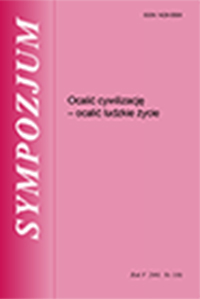
W moim referacie pragnę prześledzić rozwój i zmianę koncepcji zdrowia ludzkiego, jakie daje się zauważyć na przestrzeni historii, począwszy od starożytności, a skończywszy na czasach współczesnych. Z racji konieczności przestrzegania ram czasowych ograniczę się jedynie do pobieżnego zareprezentowania problemu w przysiędze Hipokratesa, a następnie porównam z nią współczesną wizję zdrowia i życia ludzkiego, jaka jest przyjmowana przez Światową Organizację Zdrowia przy Organizacji Narodów Zjednoczonych.
More...
Значне місце щодо історичних оцінок відносин християнства і науки належить дослідженням П. Гайденко, Т. Горбаченко, М. Заковича, В. Катасонова, А. Колодного, В. Лубського, Л. Маркової, О. Марченка, І. Мозгового, Є. Харьковщенко, М. Дронова, А. Хоменкова, А. І. Осіповата ін. Зокрема, Л. А. Маркова у праці “Наука і релігія очима християнського богослова С. Які” висуває гіпотезу, що видатні науковці мину¬ лих часів були віруючими: в окремі моменти вони відсторонювалися від філософії, часто спираючись на релігію, на релігійне відношення до світу.
More...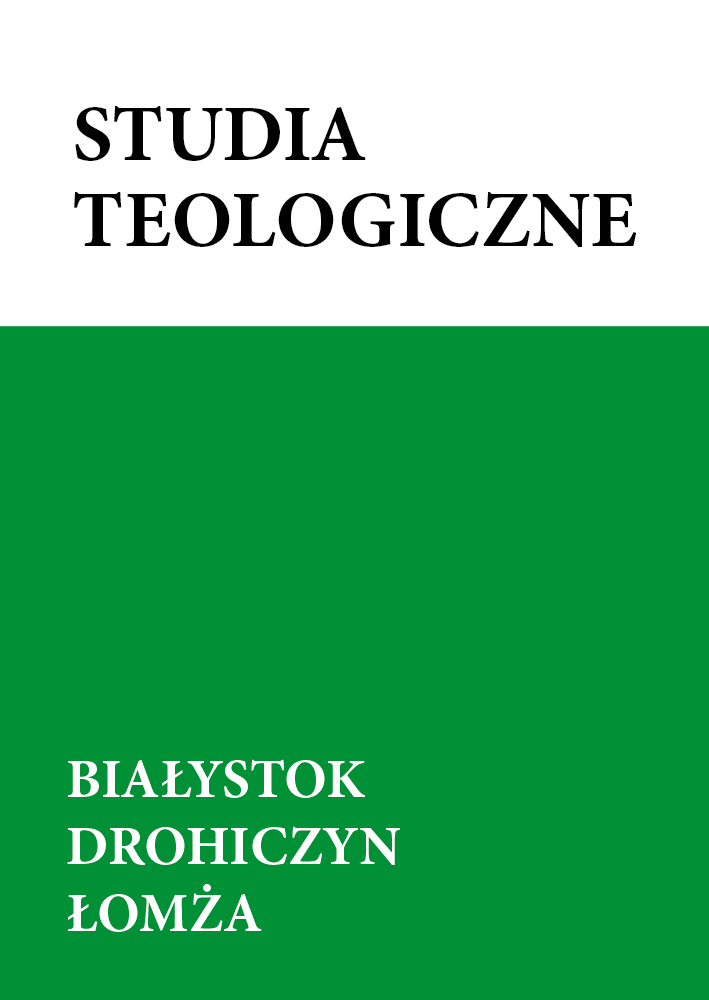
This paper regards the evolutionary vision of human origins in comparison to Christian personalism. The general idea of the paper is that it is very hard or impossible to reconcile Christian tradition and Darwin’s ideas in relation to man. The origins of anti-personalistic ideas in European culture can be found in epoch of the Enlightenment. In that epoch several reductionisms find their origins and Darwinism is one of them. Then the Church’s position on animal origin of the human body is evaluated. Two documents are considered, i.e. the encyclical of Pius XII Humani Generis and the speech of John Paul II to the Pontifical Academy of Sciences of Oct. 22, 1996. It is shown that neither of the documents positively supports the theory of the evolution of the human body. Both documents make some important reservations against Darwinism. Also, a straightforward reading of the Book of Genesis invokes difficulties against an acceptance of evolutionary human origins. The conclusion of the article is that it is important for contemporary Christians to stand firmly against the acceptance of Enlightenment-period reductionism which destroys Christian personalism in regard to the origin of man.
More...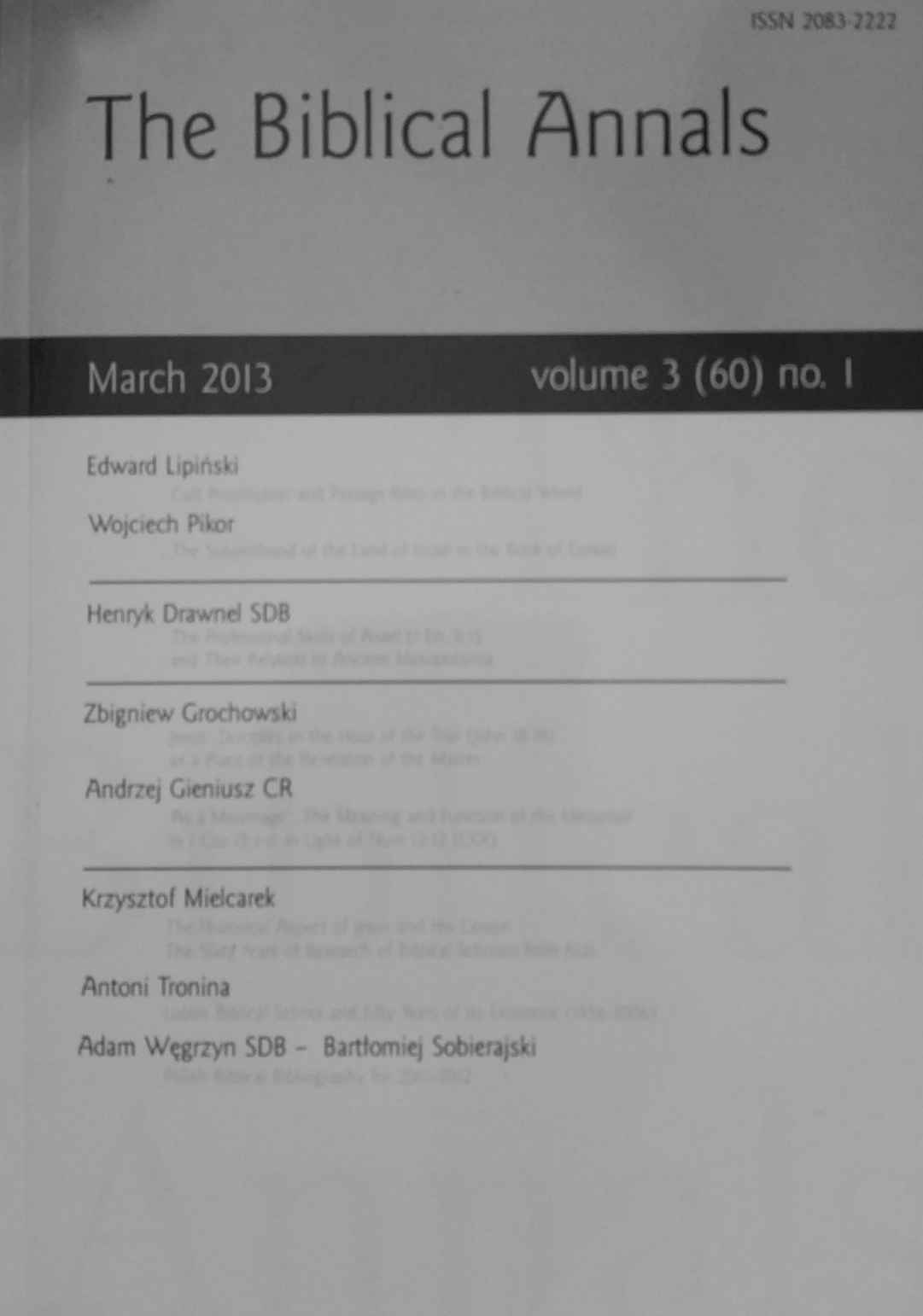
On the basis of the Greek text of Num 12:12 and of the use which Philo makes of it in the fi rst book of his Allegories of the Laws (176) the present article proposes a new understanding of the metaphor of miscarriage (ἔκτρωμα): a being not only born dead and/or incapable of living, but also deadly. In this double meaning the term utilized by Paul in 1 Cor 15:8 describes the pre-Christian past of the Apostle as both lacking life (as being without Christ) and lethal (as a persecutor of the church of God). The metaphor at the same time, constitutes the starting point of the transformation which occurred in Paul thanks to the apparition of the Risen One: from being dead to alive, and from deadly to being a bearer of life (vv. 9-10). Such a metamorphosis is tangible proof of the power of the Risen One, who even now transforms the lives of his own, and eo ipso also the guarantee of fi nal resurrection, when the good work already begun will be brought to its completion (cf. Phil 1:6).
More...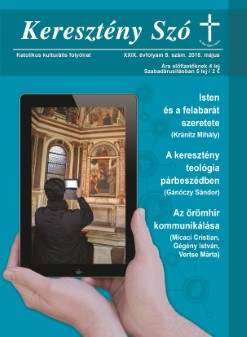
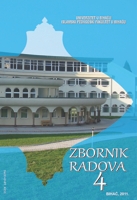
Considering this topic to be a useful and necessary material for thought, we shall in this paper address the mutual relations of people in the way of the acquisition of science. The main characters and concepts that may be encountered in this field are teachers, under which term we include all the persons with the knowledge - and students, which includes all persons who receive knowledge. The third important link that connects them is science. To be more specific, we will talk about qualities and virtues of persons associated with the science. We aim to introduce these themes through the eyes of a scholar from the golden age of science in the Islamic world. Also, we would like to point out the lasting values from this period, and why is al-Ghazzali, "read" and "interpreted" for almost an entire millennium. More specifically, this year marks the nine-hundred year (900) anniversary of the death of this prolific scholar (died 1111). The paper gives an overview of the pedagogical methods that Ghazali wrote in the form of 'conditions for success' offered to both students and teachers (teachers, professors and lecturers). Science is what binds students and teachers and it is a link which lifts them morally and scientifically.
More...
With the analysis of the topic Basics of Islamic view on the concept of Emotional Intelligence, we tried to give a conceptual definition of the Emotional Intelligence as a relatively new scientific concept and its relationship with the Islamic teachings. We attempted to identify and analyze the concept of Emotional Intelligence in the light of Islamic teaching and its place in the sources of Islam. Islam as a universal concept of life offers the solutions to all issues and problems of mankind until the Day of Judgement, and contains integrated elements of Emotional Intelligence. Emotional Intelligence as an essential component of a successful life and functioning includes: emotional sensitivity, interpersonal and intrapersonal skills, social sensitivity, communication skills, high levels of tolerance, high levels of adaptability, sociability, cooperation, and daily in collaboration in various everyday life situations and circumstances. Harmonious interpersonal relationships in all the structures are the basic prerequisites for successful work and life, and require a high Emotional Intelligence. So rightfully D. Goleman gives EI an advantage over academic intelligence. Developed Emotional Intelligence is a must for educators, health professionals, managers, politicians, educators, psychologists, social workers, therapists, lawyers, judges, policemen and others.
More...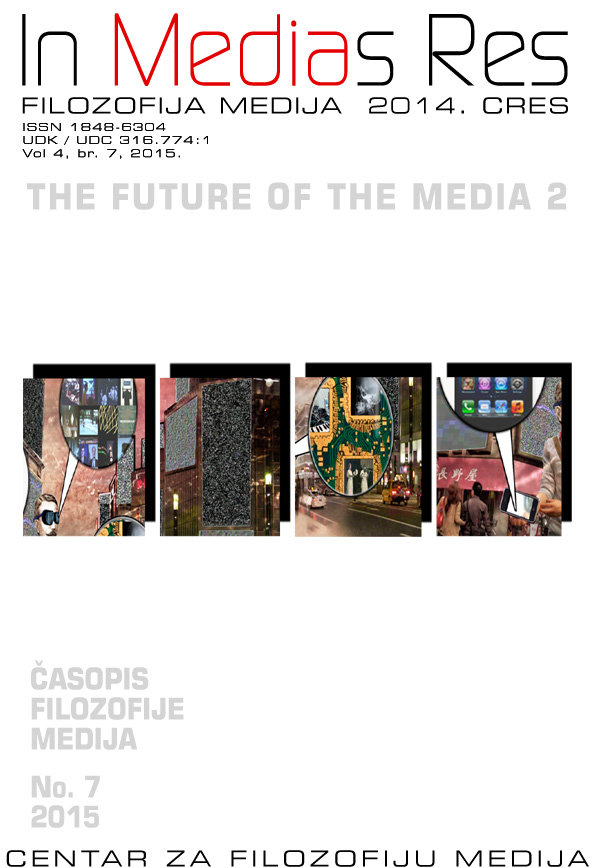
Mesdames, messieurs, tous mes chers frères : Je remercie les organisateurs d’avoir accepté cette modeste contribution144 à un si grand événement. En Algérie le nom de la Croatie est, pour beaucoup, liée au meurtre de 12 de vos compatriotes chrétiens, le 14 décembre 1993 à Tamesguida (à quelques 100 km de la capitale) où ils travaillaient à la construction d’une route. Ce drame a été l’occasion pour que les musulmans bosniaques du chantier sauvent la vie de plusieurs de leurs compatriotes. Pour ces musulmans qui ont sauvé leurs frères, mais dont les noms ont été oubliés, nous demandons à Dieu de les bénir généreusement car ils ont pleinement accompli leur foi dans le texte coranique qui dit : « Celui qui sauve un seul homme, c’est comme s’il avait sauvé l’humanité tout entière »
More...